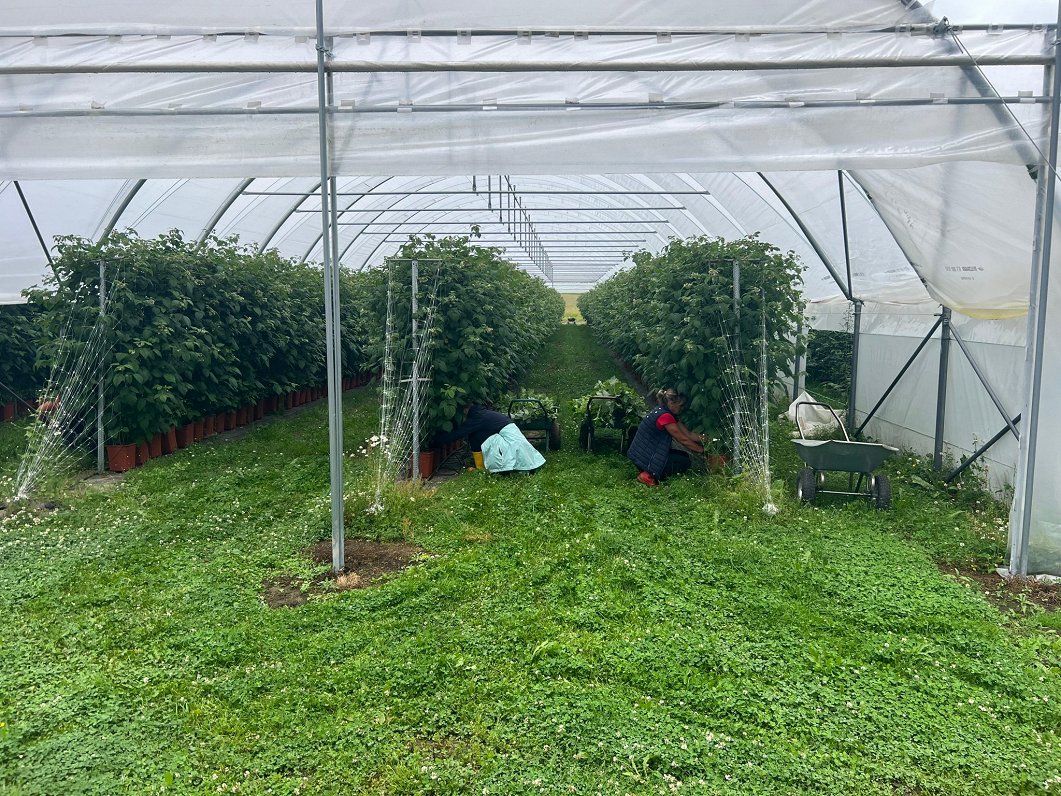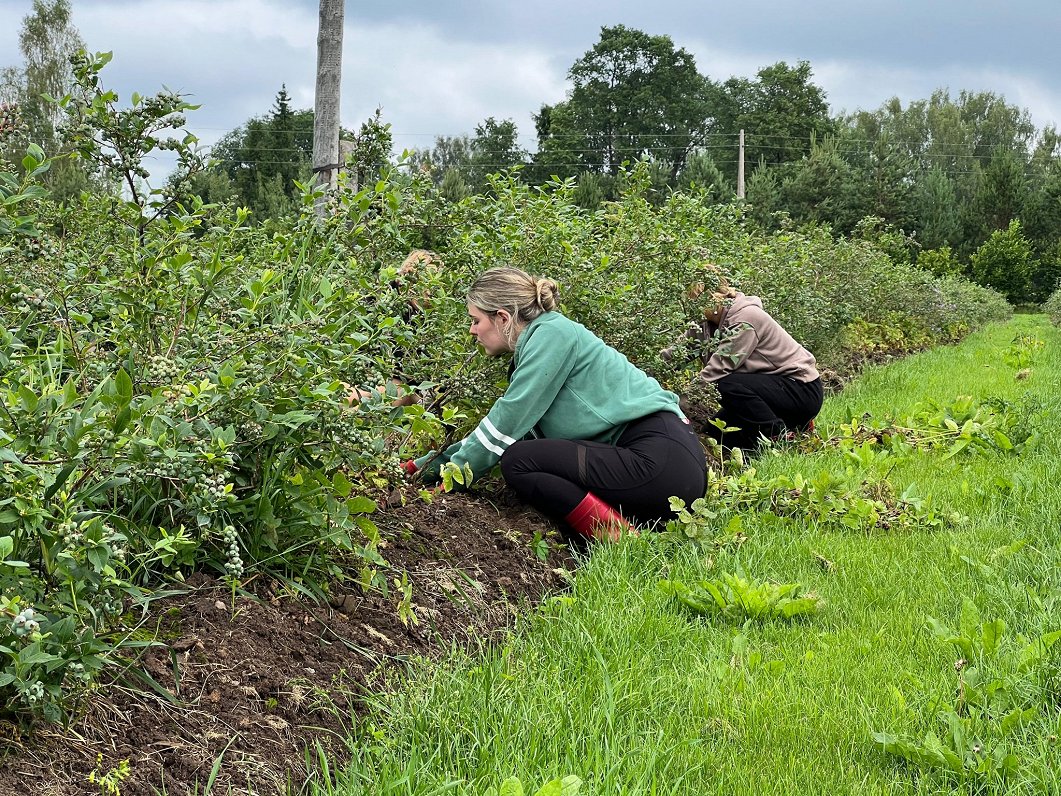Last year, more than 470 farms hired approximately 3,800 seasonal farm workers. Some of these workers can earn around 3,000 euros during the season, but wages could increase further in the future due to competition for competent labour.
Karolīna, a resident of Smiltene region, is earning money for the second summer so that she will have less time to ask her parents for money during school hours. “I usually work all summer. First I weed and then I pick berries,” the young woman said.
For Mairis, a resident of Alūksne region, this is already his fourth season. He admitted that the main reason is the opportunity to earn money for his hobby: “To take part in running competitions around the country. Then, by and large, I buy what I need for everyday life,” said Mairis.
The number of seasonal employees at Very Berry, a maker of syrups and other berry products, varies from year to year. Three years ago, the company had 101 seasonal helpers, but this summer there are only 28, as the berry season has not yet fully begun.

Photo: Miks Kuncevičs / Novadu Ziņas LTV
Gundega Sauškina, the chairwoman of the board of SIA Very Berry, said: “If there is a good harvest, we need about 30 people a day, and then it becomes difficult to pick them. The work itself is also not suitable for everyone – some people are good at picking berries, others are not. It is quite a painstaking and precise job.”
At the “Abullāči” farm, the most frequent helpers are students – many return year after year. They both weed and pick berries.
Seda resident Evelina said: “I think this is a great opportunity to spend the summer productively, earn some money, and it’s also good experience for the future.”
Pauls Kantāns, the owner of the “Abullāči” farm, admitted: “In recent years, we have felt that more and more adults are coming, among the pickers there are teachers and kindergarten teachers, and people on vacation.”
The demand for seasonal workers in agriculture remains high. However, especially in more remote regions, farmers are increasingly having to attract workers from third countries.
Mārtiņš Trons, a member of the board of the farming industry association “Zemnieku Saeima”, pointed out: “We probably need to think about how to promote the involvement of third-country nationals in seasonal work in agriculture and how to integrate them more effectively in this sector.”
The Rural Support Service is also thinking about improving the current system – for example, increasing wages and other benefits.
Kristīne Ilgaža, a representative of the Rural Support Service, noted: “There are discussions, for example, about whether the range of jobs in which seasonal agricultural workers could and should be employed should be expanded, so that there is an opportunity to pay taxes for this work and officially register everything.”
This is the 11th season since a simplified procedure for registering seasonal agricultural workers was introduced. So far this year, 351 farms have registered, employing more than 1,900 people. The number is expected to increase significantly with the start of the berry and vegetable picking season.
